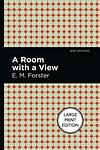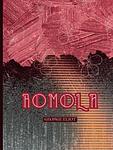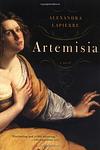The Greatest "Florence, Historical fiction" Books of All Time
Click to learn how this list is calculated.
This list represents a comprehensive and trusted collection of the greatest books. Developed through a specialized algorithm, it brings together 300 'best of' book lists to form a definitive guide to the world's most acclaimed books. For those interested in how these books are chosen, additional details can be found on the rankings page.
Genres
Historical fiction is a genre of literature that combines fictional stories with real historical events, settings, and characters. These books often take place in a specific time period and are based on research and factual information, but also include imaginative elements to create a compelling narrative. Historical fiction allows readers to experience the past in a unique and engaging way, while also providing insight into the social, cultural, and political issues of the time.
Countries
Date Range
Reading Statistics
Click the button below to see how many of these books you've read!
Download
If you're interested in downloading this list as a CSV file for use in a spreadsheet application, you can easily do so by clicking the button below. Please note that to ensure a manageable file size and faster download, the CSV will include details for only the first 500 books.
Download-
1. Decameron by Giovanni Boccaccio
"Decameron" is a collection of 100 stories told by a group of seven young women and three young men sheltering in a secluded villa just outside Florence to escape the Black Death, which was afflicting the city. The tales, which range from the erotic to the tragic, the hilarious to the instructional, are embedded in a rich framework narrative that provides a detailed portrait of the society of the Italian Renaissance.
-
2. A Room With a View by E. M. Forster
Set in Italy and England, the novel tells the story of a young English woman, Lucy Honeychurch, who travels to Florence with her older cousin and chaperone. During her stay in Italy, Lucy meets and falls in love with a free-spirited man, but due to societal pressures, she becomes engaged to a wealthy but pretentious man back home in England. The novel explores themes of societal norms, personal growth, and the struggle between heart and mind as Lucy must decide between conforming to societal expectations or following her own desires.
-
3. G. by John Berger
"G." is a historical novel set in Europe at the beginning of the 20th century, tracing the life of its eponymous and mysterious protagonist 'G.' The narrative explores his relationships with women and his experiences during significant historical events such as World War I and the Italian Risorgimento. The book also delves into themes such as sexual and political identity, and the personal impact of broad social changes.
-
4. Romola by George Eliot
Set against the backdrop of the Italian Renaissance in 15th-century Florence, this novel weaves the tale of a young and noble woman who navigates the complexities of her life amidst political and personal turmoil. As she grapples with the moral decay of her husband and the societal expectations placed upon her, she embarks on a journey of self-discovery and intellectual awakening. Through her trials and tribulations, the protagonist emerges as a figure of resilience and virtue, embodying the ideals of enlightenment and personal growth. The narrative not only explores themes of love, betrayal, and redemption but also delves into the historical and cultural milieu of Renaissance Italy, offering a rich tapestry of the period's art, politics, and philosophy.
-
5. Lorenzaccio by Alfred de Musset
The play is a dramatic tale set in Renaissance Florence, revolving around the character of Lorenzo de Medici, a young, disillusioned aristocrat entangled in the corrupt political machinations of his time. Disgusted by the tyrannical rule of his cousin, Duke Alessandro, and the moral decay of society, Lorenzo hatches a complex plot to assassinate the Duke. His internal conflict and the influence of Machiavellian philosophy drive the narrative, exploring themes of power, betrayal, and the struggle between personal ideals and the harsh realities of the political world. The play ultimately unfolds as a dark, psychological drama that delves into the depths of human nature and the costs of radical action.
-
6. Artemisia by Anna Banti
"Artemisia" is a historical novel that delves into the life of Artemisia Gentileschi, a pioneering female painter of the Baroque era, who overcame the constraints of her time to achieve artistic greatness. The narrative intertwines the author's own reflections and struggles with the story of Artemisia, creating a rich tapestry that explores themes of feminism, creativity, and resilience. As the protagonist confronts personal tragedy, including a notorious rape trial, and battles societal norms, her journey of self-discovery and determination to succeed as an artist in a male-dominated world is poignantly portrayed, offering a profound meditation on the intersection of history, gender, and art.
-
7. A Rich Full Death by Michael Dibdin
This novel is a thrilling mystery set in the picturesque city of Florence in the 19th century, where a series of bizarre and gruesome murders captures the attention of the local populace and authorities. The narrative intricately weaves historical figures into its fabric, notably the poet Robert Browning, who becomes an amateur detective trying to solve the case. As Browning delves deeper into the dark underbelly of Florence, he uncovers a tangled web of deceit, madness, and obsession. The story masterfully combines elements of historical fiction with the suspense and intrigue of a classic detective novel, creating a rich and atmospheric tale that keeps readers guessing until the very end.
-
8. The Enchantress of Florence by Salman Rushdie
This novel intertwines the history of the Mughal Empire in India and Renaissance Florence through the journey of a yellow-haired stranger who claims to be a lost relative of the Mughal Emperor, Akbar the Great. The stranger tells a tale of a hidden princess, a woman known only as the Lady Black Eyes who possesses magical powers and whose story involves a great artist and the notorious warlord, Argalia. The plot explores themes of power, love, and identity while blending history, mythology, and magic in a richly layered narrative.
-
9. The Store by Thomas Sigismund Stribling
"The Store" is a Pulitzer Prize-winning novel that dives deep into the social and economic changes in the South during the early 20th century. The narrative follows the life of a former Confederate soldier who, after the Civil War, manages to rise from poverty and become a successful businessman. The book explores themes of racism, class struggle, and the complexities of the Southern society during the Reconstruction period, as the protagonist navigates his way through the challenges of his time.
Reading Statistics
Click the button below to see how many of these books you've read!
Download
If you're interested in downloading this list as a CSV file for use in a spreadsheet application, you can easily do so by clicking the button below. Please note that to ensure a manageable file size and faster download, the CSV will include details for only the first 500 books.
Download







